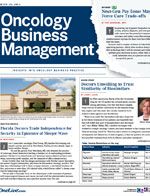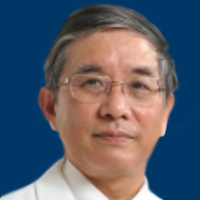Value Debate Turns to Drug Pricing
Physicians have shown they don't have to be quiet participants in the value argument that is raging in oncologic circles.
OncLive Chairman,
Mike Hennessy
Physicians have shown they don’t have to be quiet participants in the value argument that is raging in oncologic circles.
There’s little logic in the way manufacturers price their increasingly expensive cancer drugs, the American Society of Clinical Oncology (ASCO) and doctors from Memorial Sloan Kettering demonstrated in June, when they released versions of drug valuation tools that allow users to compare drug prices with drug toxicity and clinical benefit.
ASCO’s framework looks at different drug combinations used in a trial and assigns a net health benefit to the test regimen. The cost of the treatment is not factored into the score, but it is provided for comparison purposes, and it can be very telling.
Looking at a trial of cisplatin and pemetrexed versus cisplatin and gemcitabine (control), ASCO found absolutely no difference in the net health benefit but a wide gap in price: $9193 per month for the test combination versus $811 for the control.
The methodology is still very much a prototype that needs to be augmented by a massive infusion of data, ASCO warned. Still, it’s a glimpse at how useful such an evaluation tool can be for physicians and patients trying to make sound health and financial decisions about oncological care.
Doctors at MSK were less conservative in their approach. Their DrugAbacus tool allows users to assign a dollar value to a year of life and then calculate a fair market price for a particular drug. That value, in turn, can be compared with the actual price of the drug.
Put to the DrugAbacus test, many oncology drugs appear quite reasonably priced, though others seem clearly over the top.
Peter Bach, director of the MSKCC Center for Health Policy and Outcomes, has stated that the rising financial stress on cancer patients was a chief reason behind the decision to develop the DrugAbacus, which he said demonstrates that it’s hard to spot the justification for the high prices of some oncology drugs. While weighing in on the value debate, physicians are also attempting to address what they see as inequities imposed by payers.
The American Society of Hematology has announced its backing for legislation introduced in the House and Senate that would ensure that oral oncolytics and self-injectables are made available to patients on terms “no less favorable” than for drugs administered in physicians’ offices. Key to this issue are the percentage co-pays that are compounded by the soaring costs for newer immunotherapy drugs.
Similar issues are discussed this month in a story about rising drug costs and the means payers are using to control spending. “I think the payers put a variety of impediments in the way to see if you’re really committed to doing or prescribing something,” Mike Neuss, MD, chief medical officer for the Vanderbilt-Ingram Cancer Center, told Oncology Business Management.
Beyond value and payment, this month’s issue addresses the proliferation of narrow networks, otherwise known as provider groupings that are streamlined to achieve better health outcomes and cost savings. Some high-quality cancer centers have found themselves excluded from these networks, seemingly on the basis of their relatively higher costs. This is a disservice to patients who formerly had access to these centers or who would benefit from having access.
There is value in this type of open discussion. The more people talk about the problems with coverage and value, the more—it can be presumed—will be done to find solutions.




